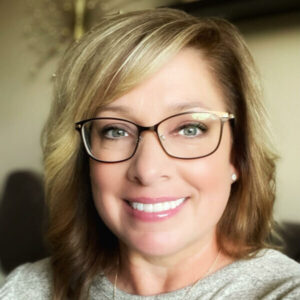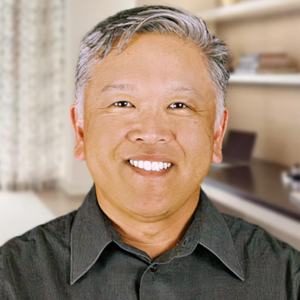If you’ve ever caught yourself worried about a negative headline as it relates to your career prospects in dentistry, let me explain what’s happening. Perhaps this will help a bit.
Not a day goes by without reading about the upcoming disaster in private practice dentistry. Usually the implication is that private practice ownership is going away. Soon. Like…the day after tomorrow if you’re not careful! It’s a wonder any young dentists still consider ownership with all the negative news out there.
It’s hard to get away from the headlines that scream:
“Student loan balances are at historic highs!”
“DSOs are taking over!”
“Dental schools aren’t providing enough clinical practice for new grads!”
“Insurance companies are taking over dentistry just like they did medicine!”
Yikes!
…
Pessimism is Our Human Default – It Also Sells Better
The thing about pessimism is not only that it’s more common than optimism, but it sounds smarter, too. If you’re a magazine editor, which article are you going to put on the cover?
- The completely true, but somewhat boring positive story, or
- The really scary, not-true-yet-but-could-be negative one?
Who’s going to read an article about the fact that composite materials got 1% better this year, or that crowns are lasting – on average – 5% longer for most patients? Whoop-de-doo.
Let’s look at an example outside of dentistry. On December 29, 2008 at the close of the worst year for the modern economy EVER, The Wall Street Journal published a story saying the worst was yet to come. It ran a front page article on the economic outlook of a Russian professor named Igor Panarin who saw the bad year only getting worse:
The Journal wrote:
Around the end of June 2010, or early July [Panarin] says, the U.S. will break into six pieces-with Alaska reverting to Russian control … California will form the nucleus of what he calls “The Californian Republic,” and will be part of China or under Chinese influence. Texas will be the heart of “The Texas Republic, a cluster of states that will go to Mexico or fall under Mexican influence.”
This wasn’t some twitter rant by some obscure blue-check-mark professor no one had heard of. This was on the front page of the most prestigious financial newspaper in the world.
Pessimism sells. Optimism does not.
The funny thing about stories like Panarin’s in The Journal is that their polar opposites – outrageous positive forecasts are never, ever taken as seriously. Imagine late 1940’s Japan. This is a country just gutted in WWII. A brutal 1946 winter caused a famine and the average Japanese person was living on 800 calories a day. Now imagine some magazine publishes an article that says:
Cheer up, everybody! Within a single generation our economy will be 15 times the size of what it was before the end of the war. Our life expectancy will just about double. Our stock market will take off like a rocket and do better than any other country. We’ll go 40 years without seeing unemployment go over 6%. We’ll be so rich that we’ll own a decent percentage of the most prized real estate in the United States, the country that just dropped nuclear weapons on us.
That author would have been rounded up, laughed out of the room, and forced to participate in the 1940’s version of those mean Japanese game shows where everyone laughs at you. But keep in mind, the above description is exactly what happened in Japan after WWII.
Pessimism just sounds smarter and more plausible than optimism.
Point out to a buddy that you’re actually having a decent year in your practice, and that you’re planning to fully fund your profit sharing plan this year, and they’re likely to shrug you off or look at you skeptically.
But tell someone they’re in trouble and you’ll have their undivided attention.
Pessimists Forget How Markets Adapt
Let’s apply this thinking to the common trope that DSOs are going to take over private dentistry. As we do, let me ask you a question: What percentage of dental practices in the U.S. are owned by corporate groups? I’m talking about both the mega-900+ location DSOs and the small 5-10 location groups owned by one or two docs essentially acting as a mini-DSO.
25%?
35%?
I asked my son’s orthodontist the other week what he thought. His guess was “about 50%”.
The answer surprised him. It may surprise you.
Corporate-owned practices only make up between 10-15% of the total market place. (No one knows for sure, because it’s impossible to count all the smaller under-10-location operations around the country, but some experts think it’s on the lower end of that range.)
But here’s the thing.
DSOs were only 5% or less of the market 10-15 years ago.
5% ten years ago…and 10% now. Oh my!
It’s the trend that has people worried. Double the market share in 10 years again and it’ll be 20%, the thinking goes. Give it another 10 years and DSOs will own 40% of the market. And so on!
This is flawed thinking. This is like what environmentalists were writing about the rainforest in the 1970’s (we now have more and diverse rainforests than ever before), or what people assumed about “peak oil” less than 15 years ago (no one knew fracking would make more oil available than ever before and even cheaper). They were looking at a trend line on a graph and assuming that the rest of the market wouldn’t respond.
But dentists are too smart not to respond. If DSOs, or insurance, or whoever starts cutting into their patient base, they’ll adapt. Maybe they’ll improve their websites. Maybe they’ll learn how to talk with patients more effectively. Maybe they’ll train their staff to have better customer service. More than likely they’ll invent new solutions to current problems that we can’t even imagine right now.
And they’ll have a ball doing it. They’ll be happier in their practices, patients will like coming to see them, many will make more money and retire sooner. All while preserving the autonomy and independence they sought when they went into private practice.
If You Want to Buy a Practice – Do It
The lesson from all of this is not to stick your head in the sand, but instead to be more realistic than pessimistic about your career options and trajectory. If you want to buy a practice – do it! I’ve helped hundreds of dentists this year alone accomplish that – all in the middle of a pandemic!
They’re happy. They’re making more money. They’re loving their clinical independence. And…yes…they’re working hard to make it all happen.
And that can be you. As long as you’re not too pessimistic.
Read More:
Why I Don’t Like Buying from Multi-practice Owners | Evaluating a Dental Practice Purchase
Buying Money with Less Money | Negotiating a Dental Practice Purchase







